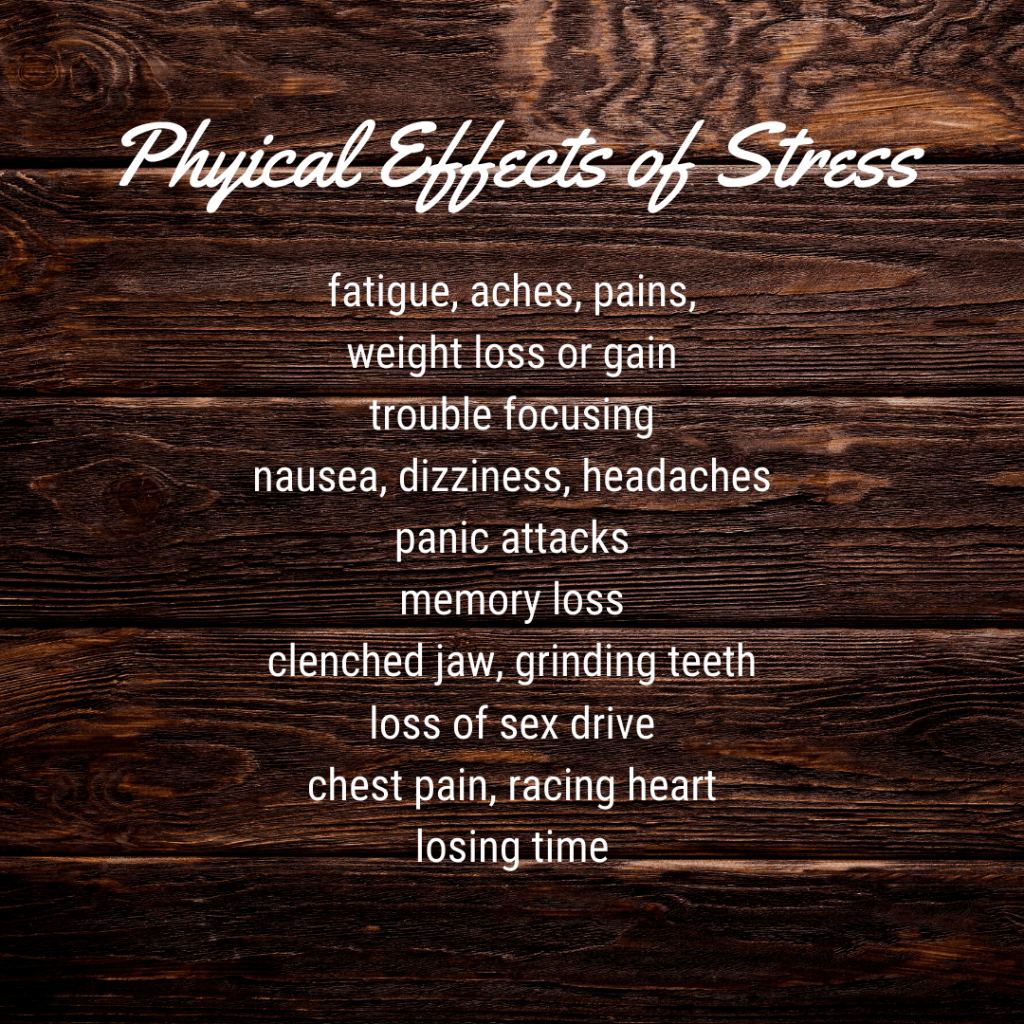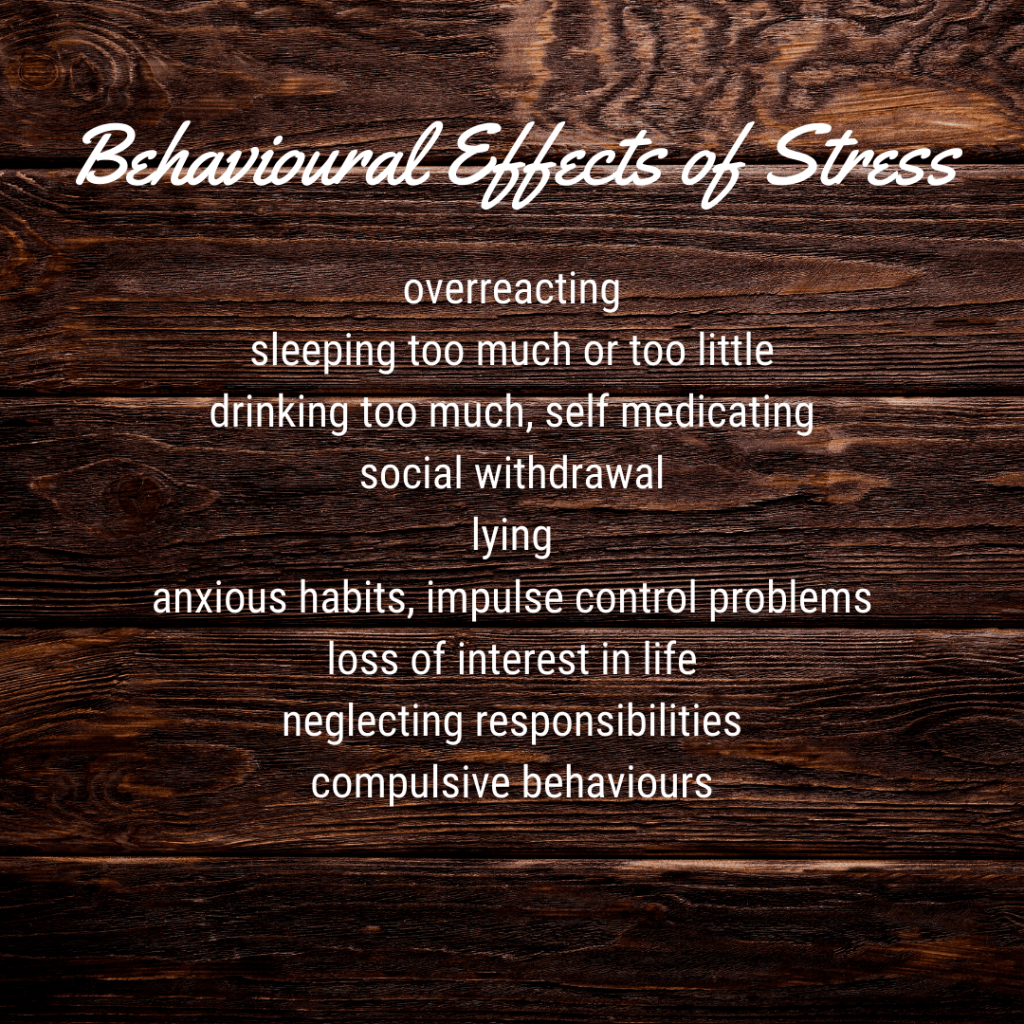I’m taking an online course on personal growth. The timing for the coaching sessions is coincidentally excellent. There’s a pandemic and I have time on my hands
The first module was about stress. *
I tend to think I’m not under much stress. I mean yes, I have personal, behavioural, and mental health issues, I’m on disability, and I just finished cancer treatments but if you’d asked me if I was stressed, I’d have said “no”.
The included “effects of stress” checklist proved my “not stressed” supposition a lie.
I tend to equate being stressed with being snappy, angry, and tense. That’s part but it’s not the only way stress presents. For instance, my stress reaction has an emotional component; I shut down. I’m aware of the behaviour but didn’t know it could be a stress thing.
Of course, this is my reaction. The effects of stress will look different for people who aren’t me.
Our reactions to stress can be categorized as physical, emotional, or behavioural. Most of us exhibit a combination of all three. **
Physical Effects

Emotional Effects

Behavioural Effects

The problems that we manifest in response to stress are the body’s way of communicating. The reactions tell us something we need to know; that we are losing when it comes to managing our life stressors; we are in distress.
It’s interesting to me that we can live with ourselves twenty-four-seven and still fail to notice things going sideways.
Our response to stress doesn’t “just happen”. Everyone develops their own. We pick it up as we move through life. It’s probably a combination of nature and nurture.
Although I react first in the feels, I skew heavily towards behavioural effects: isolation, lost sleep, loss of interest in life, and compulsive behaviours.
Stress reactions aren’t magical. They don’t appear for no reason just because. Our stress reaction is a response to a trigger. The trigger generates (unhelpful) thoughts, the thoughts give rise to beliefs, and the beliefs cause an emotion and we react.
There are ways to reduce the effects of stress. The most obvious is to remove the source. Unfortunately, it’s not always possible. That’s why you need tools to get you through.
This partial list of coping techniques shares many qualities with other lists for other issues. It seems the same things work to keep us healthy, calm, and sane, regardless of the affliction. Repetition, however, is a great way to learn.
A partial list of ways to reduce stress: ***
1. Get outside. Fresh air calms the nervous system, allowing you to relax. It’s even better if it’s sunny. Mood-boosting vitamin D is a nice bonus. With that in mind;
2. Consider supplements. Don’t go crazy; you probably don’t need megadoses. But adding B, D, and Omega-3s probably wouldn’t hurt. Several studies show mood improvements with the consumption of these supplements. Some herbal remedies also have promise, including green tea. As always, if you’re on medication, check with your pharmacist;
3. Practice mindfulness. Pay attention to the now, to the moment you inhabit. Get grounded. Don’t hold on to past or future stress;
4. Breathe. Most of us aren’t very good at it, despite it being a requirement for life. Most of us breathe too shallowly. Notice your breathing. Slow it down. Make an effort to breathe from the belly. There are good apps that help. My favourite is “Breath2Relax” because the interface is easy, it helps me practice deep breathing, and it’s free.
5. Journal. Get out whatever is bothering you. If you don’t know, start writing anyhow. It often comes. It’s interesting to explore the places our minds take us;
6. Cut down on the caffeine. I’d take this one with a grain of salt. Everyone is different. What’s more important to note is if your consumption has changed. An increase could mean you need the artificial boost because you’re fatigued or drained;
7. Don’t isolate (this is easier in non-pandemic times). Animals isolate when they’re injured and what is stress but a kind of injury? Avoid the urge. Contact friends and family members. Go out, connect with the world;
8. Learn to say no. It really is always boundaries. It’s okay to say “no” to requests and demands. It doesn’t make you a bad person. But enforcing your boundaries might make you a more relaxed one.
* Side note: much has been written about the positive effects of stress. Most researchers divide stress into two categories, conveniently referred to as good stress (eustress) and bad stress (distress). Good stress can be beneficial. It can help with productivity, it can help your thinking in the short-term, it can give your immune system a temporary boost, and it can act as a warning system in dangerous situations. By its nature, good stress doesn’t require much in the way of mitigating behaviours. Stress is only problematic if it’s negative or pervasive.
**citation: Eterna School of Greatness.
***citation: 16 Simple Ways to Relieve Stress


There are some great reminders here that have me thinking I need to change some things to get a better perspective to life.
LikeLiked by 1 person
I’m glad there was something there that was helpful. Thanks for reading 🙂
LikeLiked by 1 person
I’m so, so glad you’re sharing this! It’s great to get these tips with your own added advice.
(I think deleting caffeine from my life would quadruple my stress!)
LikeLiked by 1 person
Thank you 🙂 Agreed. My caffeine is part of me – I think it makes up 20% of my blood.
LikeLiked by 1 person
I’m drinking coffee now, as I read this 😂
LikeLiked by 1 person
Very informative, Thanks much
Stay safe and healthy
LikeLiked by 1 person
Thank you. Blessings.
LikeLiked by 1 person